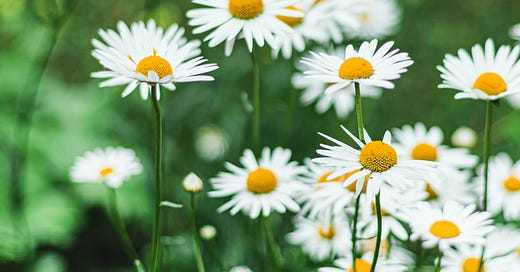Theologically, I've always had an ambivalent relationship with power. Top-down coercive power isn't anything Christians should be involved with. Domination and conquest are not the way of Jesus.
And yet, over the years my attitude toward power has nuanced. The same power that can tip into domination and conquest can be used to create spaces of flourishing.
There's a moment in The Lord of the Rings when Gandalf faces off with Denethor, the Steward of Gondor. In their testy exchange, Denethor pontificates that, in his role of Steward, his duty is clear: Put Gondor first, above any other interests or considerations. To which Gandalf responds:
“The rule of no realm is mine, neither of Gondor nor any other, great or small. But all worthy things that are in peril as the world now stands, those are my care. And for my part, I shall not wholly fail of my task, though Gondor should perish, if anything passes through this night that can still grow fair or bear fruit and flower again in days to come. For I also am a steward. Did you not know?”
In many ways, The Lord of the Rings is a prolonged meditation upon power. At the center of the saga is the Ring of Power. To one side of a moral divide are those who seek power, Sauron and Saruman and those who follow them. On the other side are Gandalf, Aragorn, Elrond, Tom Bombadil, and Galadriel, individuals of enormous power who put their power to work in the service of others and the natural world. Eventually, we even see Frodo, Sam, Merry, and Pippin return to the Shire to use their hard-won power to rescue and heal the Shire. I'm particularly struck by Sam's work as a gardener, and how he eventually becomes the mayor. Sam turns his entire world into a garden.
The point is that power is really a neutral thing. It's just an ability to affect the world. The critical thing is how that power is directed and toward what ends. We can use our power to dominate or we can use our power to steward and heal, to carve out places where fair and fruitful things might grow.
Jana and I have adopted a saying. We cannot remember where we first heard it, but the saying is this: "Who flourishes because you have power?"




What you describe seems to me to be a more medieval model of power, similar to how in the Grail Cycle the land wilts when the king withers, and is abundant when the king flourishes. It’s not surprising that this is how Tolkien would conceive of power, since he studied literature of the medieval period, but I think it does somewhat limit how we conceive of power.
To me, it’s important that others have agency, which is a reflection of their own power. Perhaps this is part of what you mean by flourishing, but I don’t know that flourishing always connotes this. One can grow a garden that flourishes, but is still completely a reflection of the will of the gardener. This is in contrast, perhaps, to perhaps a more indigenous way of approaching land care, which might be summed up by the phrase used as the title of M Kat Anderson’s book on California indigenous land management: “tending the wild.” It is a spectrum, of course, but to me, the model of tending the wild (willed) agency of other human and nonhuman creatures is the best way to approach power and influence.
Perhaps I’m too influenced by the enlightenment, but I would personally not like my flourishing to be tied to the archons. And I think this is the force of the anarchist argument–the insistence that our flourishing need not be continuous with the accomplishments or failures of the rulers (hence, mutual aid, and “we keep us safe”).
However, and I think this is how you intend the question to be read, it is useful, of course, to consider downstream effects of how one uses one’s agency, because we do in fact have billionaires and other lords with vast power, and we should always push them in how they wield it.
Ultimately I think Jesus is our example in this. The way he emptied himself, the way he used his power, conversely the way he refused/didn’t use his power…
Interesting how he responds to the the worlds political and religious powers…
What does Jesus allowing himself to be hanging on the cross teach us? It’s a tough call…
Brilliant post.